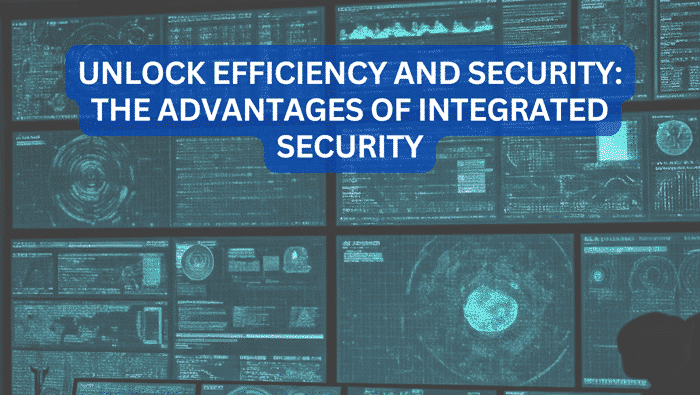In today’s complex world, security is no longer a single-faceted concern. Instead, businesses and organizations require a comprehensive approach that seamlessly blends physical and cyber security measures. Thus, the power of security integration systems becomes essential. In essence, by bringing together disparate security technologies, security systems integration creates a unified, robust defense against a wide range of threats.
What is Security Systems Integration?
At its core, integration of security systems involves connecting various security components, such as access control, video surveillance, intrusion detection, and network security, into a single, cohesive platform. Moreover, this integration is facilitated by cyber security integrators and cyber security system integrators who possess expertise in both physical and cyber security domains. Because of this expertise, they understand the intricacies of network security integration and, accordingly, can create a harmonious system that maximizes protection.
Benefits of System Integration :
The benefit of system integration are numerous and far-reaching. Here are some key advantages:
- Enhanced Situational Awareness: Integrated systems provide a holistic view of security events. Instead of monitoring separate systems, security personnel can access all information from a central dashboard, leading to faster response times and improved decision-making.
- Improved Efficiency and Reduced Costs: By streamlining operations and automating tasks, integration eliminates redundancies and reduces the need for manual intervention. This translates to lower operational costs and increased efficiency.
- Strengthened Security Posture: Integrating security systems creates a more robust defense against both physical and cyber threats. This integration security approach ensures that vulnerabilities are addressed comprehensively, minimizing the risk of breaches.
- Scalability and Flexibility: Integrated systems are designed to be scalable and adaptable to changing needs. As your organization grows, you can easily add new components and functionalities without disrupting existing operations.
- Centralized Management and Control: With a unified platform, managing and controlling all security functions becomes significantly easier. This simplifies administration, reduces complexity, and improves overall security management.
- Improved Incident Response: In the event of a security incident, integrated systems provide valuable data and insights that can aid in investigation and response efforts. This allows for faster identification of the root cause and more effective remediation.
Why Choose a Professional Integrator?
Implementing a successful security integration project requires specialized knowledge and experience. Engaging qualified security integration systems providers, cyber security integrators, and cyber security system integrators is crucial. These professionals can:
- Assess your specific security needs and develop a tailored integration strategy.
- Select the right technologies and ensure seamless interoperability.
- Implement and configure the system for optimal performance.
- Provide ongoing maintenance and support.
System integration security isn’t just about connecting devices; it’s about creating a unified security ecosystem that protects your organization from evolving threats. By embracing integration of security systems and partnering with experienced integrators, you can achieve a higher level of security, efficiency, and peace of mind.
Conclusion
The advantages of integrated security systems are clear: enhanced situational awareness, improved efficiency, and a strengthened security posture. Don’t leave your organization vulnerable. Partner with Cyber Protect to create a seamless, integrated security ecosystem that protects you from evolving threats.

